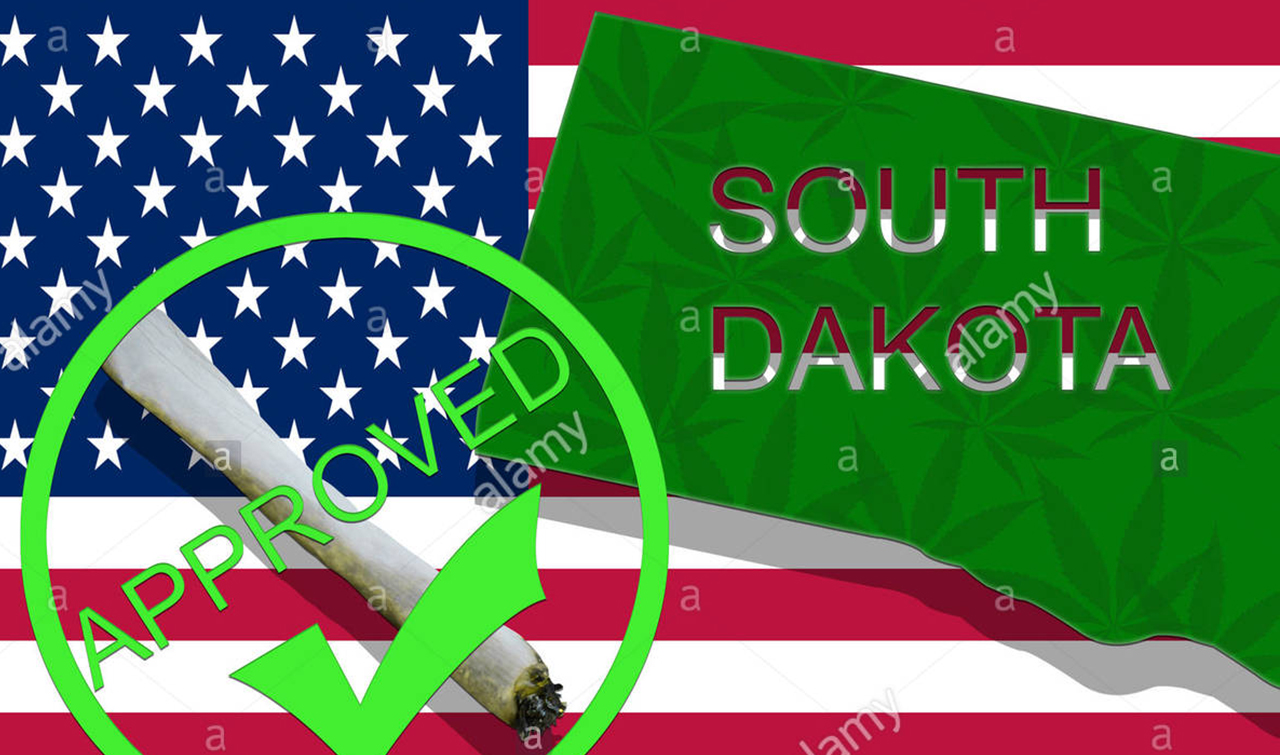South Dakota Cannabis License Requirements
South Dakota voted to pass Amendment A that legalized recreational marijuana by a 54-46% of the vote. Measure 26 to legalize medical marijuana also passed, but by a wider 70 to 30% margin.
When are Marijuana License Applications Open in South Dakota?
South Dakota legalization will become the law on July 1, 2021. The Department of Revenue will be charged with developing licensing regulations by April 1, 2022.
Types of Marijuana Licenses to Become Available For in South Dakota
For recreational marijuana program, the licenses available in South Dakota according to Amendment A, are:
- License permitting to cultivate, process, manufacturer, transport and sell marijuana to marijuana wholesalers;
- Licenses permitting independent marijuana testing facilities to analyze and certify the safety and potency of marijuana;
- License permitting to package, process and prepare marijuana for transport and sale to retail sales outlets;
- License permitting retail stores to sell and deliver marijuana to consumers.
- Other types of licenses could be established by the department
- License for medical marijuana dispensaries would be regulated by South Dakota’s Department of Health. Local government may establish a limit to the number of medical cannabis establishments in its locality
Number of licenses allowed for the Cannabis industry in South Dakota?
South Dakota didn’t set a state wide capped number of licenses, contrary to many other states in the United States like Illinois and Arizona.
Although it does not have a statewide limit for the number of licenses approved neither for medical marijuana businesses nor for adult-use businesses, cities may govern their own numbers.
Cannabis License Costs in South Dakota?
The cost of a cannabis license will depend on what type of license you want to get for your operation. We still don’t have a number for the cost of the Licenses since the regulations are still in the writing process.
Amendment A states that by April 2022 the Department would have to issue the necessary regulations for procedures of licenses, renewal, suspension and revocation of licenses, including application, qualifications and fees, so stay tuned!
Application Requirements for a Marijuana License in South Dakota?
Regarding the requirements to Become Available for a cannabis license in South Dakota, by April 2022 the Department would have to have set:
- Qualifications for licensees;
- Security requirements, including lighting and alarm requirements, to prevent diversion;
- Testing, packaging, and labeling requirements, including maximum tetrahydrocannabinol levels, to ensure consumer safety and accurate information;
- Restrictions on the manufacture and sale of edible products to ensure consumer and child safety;
- Health and safety requirements to ensure safe preparation and to prohibit unsafe pesticides;
- Inspection, tracking, and record-keeping requirements to ensure regulatory compliance and to prevent diversion;
- Restrictions on advertising and marketing;
- Requirements to ensure that all applicable statutory environmental, agricultural, and food and product safety requirements are followed;
- Requirements to prevent the sale and diversion of marijuana to persons under twenty-one years of age
Constitutional Amendment A and Measure 26
South Dakota legalization becomes law on July 1, 2021. The Department of Revenue will be charged with developing licensing regulations by April 1, 2022.
Home Grow in South Dakota?
- Measure 26: MIN 4 plants
- Amendment A: 3 plants per adult, 6 per household IF you live in an area with no licensed retail store
Social Equity in South Dakota Cannabis Laws?
Bare Minimum Criteria Towards Restorative Justice:
- Expungement? NO
- Social Equity Provisions? NO
- Portion of Taxes Allocated to Community? NO
Cannabis Possession Rules in South Dakota
- Measure 26: MAX 3 oz
- Amendment A: MAX 1 oz
Licenses Available
Amendment A:
- License permitting to cultivate, process, manufacturer, transport and sell marijuana to marijuana wholesalers;
- Licenses permitting independent marijuana testing facilities to analyze and certify the safety and potency of marijuana;
- License permitting to package, process and prepare marijuana for transport and sale to retail sales outlets;
- License permitting retail stores to sell and deliver marijuana to consumers.
- Other types of licenses could be established by the department
Measure 26:
- License for medical marijuana dispensaries would be regulated by South Dakota’s Department of Health. Local government may establish a limit to the number of medical cannabis establishments in its locality
License Windows
- Amendment A states that by April 2022 the Department would have to issue the necessary regulations for procedures of licenses, renewal, suspension and revocation of licenses, including application, qualifications and fees.
- Time periods could not exceed 90 days, by then the Department must have issued a response on the application, either accepting or rejecting it.
- No statewide capped number of licenses – cities may govern their numbers.
Early Applicants Have An Advantage
Inclination is given to early candidates. Roughly 145 licenses are accessible for early candidates. The first of these early candidates incorporate enlisted not-for-profit clinical dispensaries. These candidates can sell clinical and recreational items from a similar office.
This is acceptable, as it won’t double the quantity of actual dispensary areas.
The second round of early candidates will incorporate people who look to work recreational dispensaries in provinces with under two enrolled philanthropic clinical cannabis dispensaries.
After early candidate licenses are given, the office gives more maryjane foundation licenses to qualified candidates. This will be finished by irregular choice. Likewise, the licenses gave will be substantial for a very long time.
What’s more, the division in Arizona will build up 25 “make” licenses, these will help the individuals who need to handle pot yet are not subsidiary with any huge cannabis organizations. Furthermore, a fourth of these licenses will go to regions lacking existing dispensaries inside a 25-mile range.
All things considered, the office will support cannabis permit applications in Arizona that know about the weed business.




